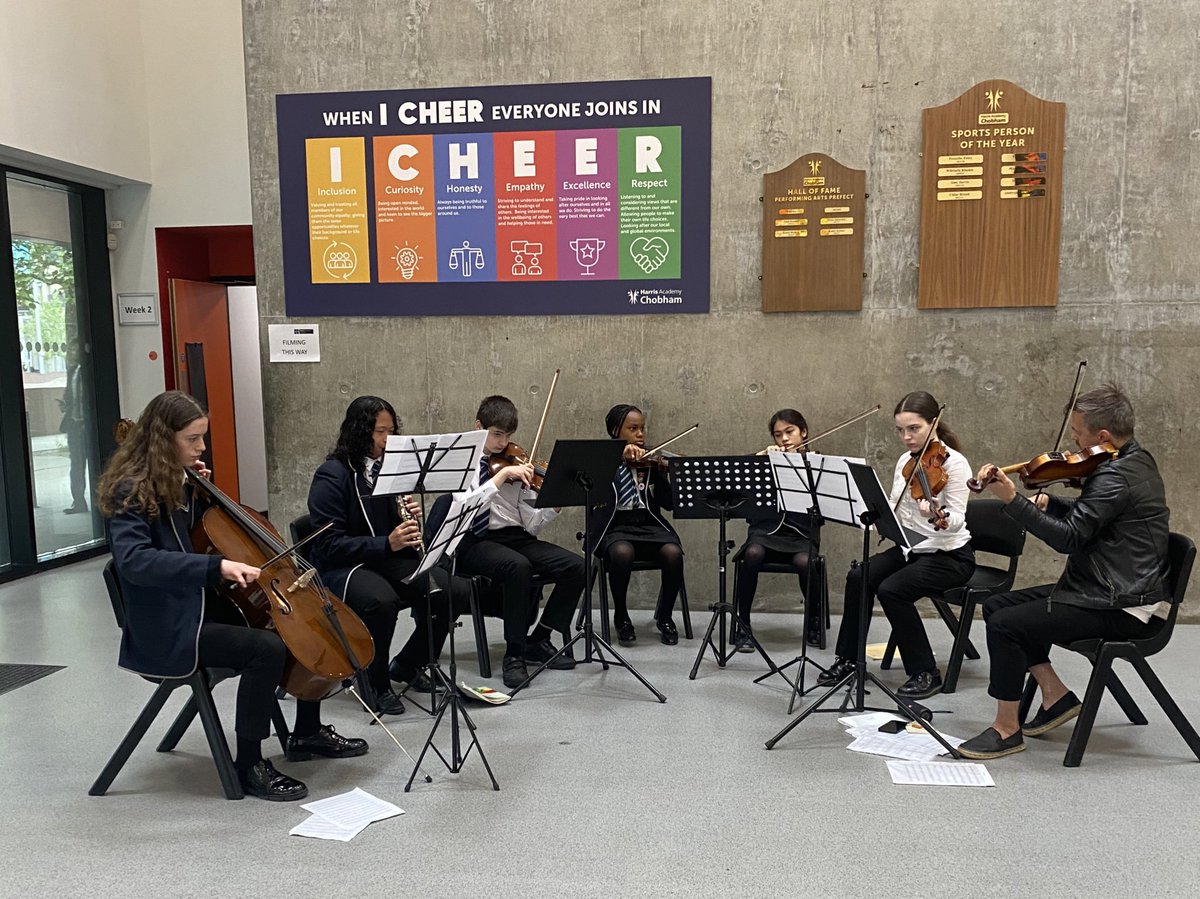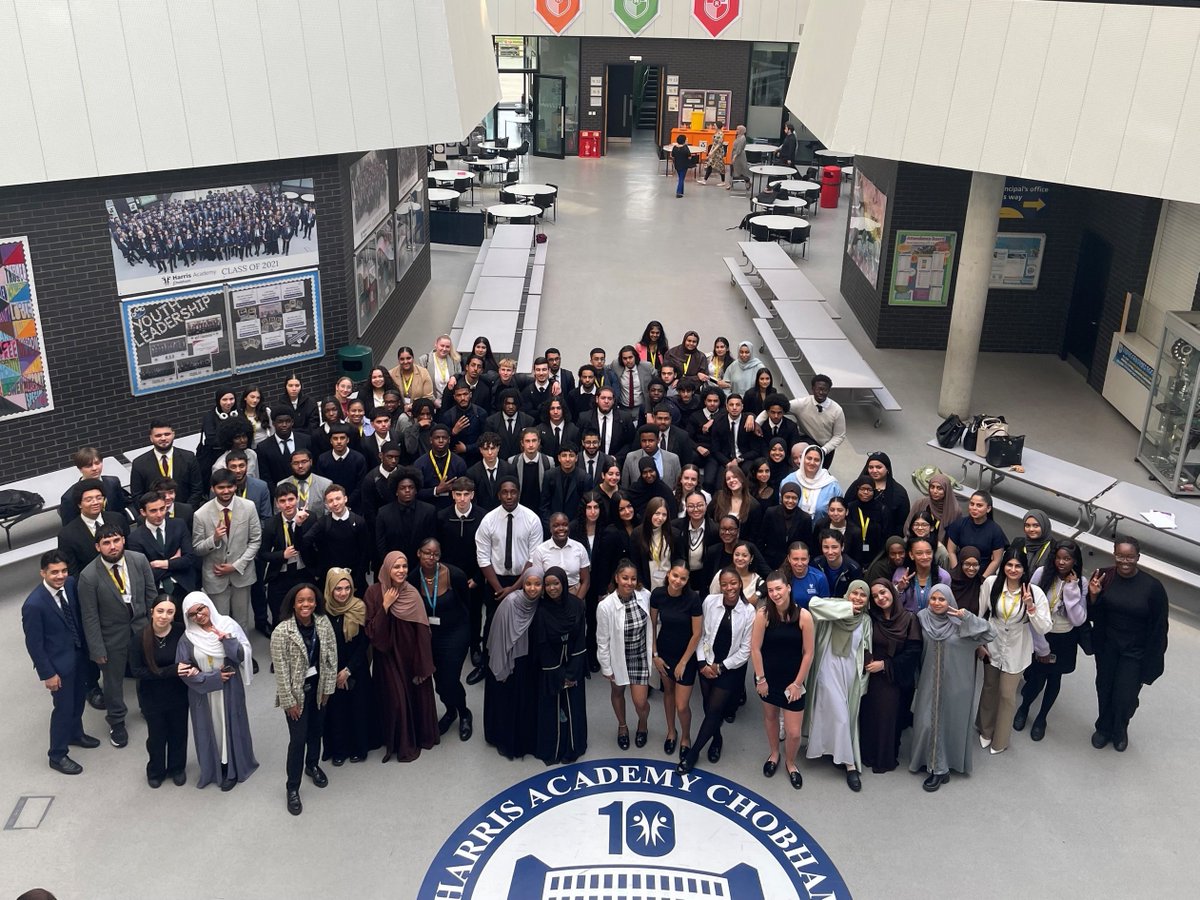11/07/24
Watch this advert featuring @chobhamacademy https://t.co/1vcMFWpI1m
follow us @chobhamacademy

10/07/24
What a fantastic music event @HarrisFed @chobhamacademy this evening to celebrate their 10th Anniversary! Performance bringing the whole academy and @NewhamLondon community together 🥳! pic.twitter.com/6OU4L8quNh
follow us @chobhamacademy

10/07/24
Lots of fantastic student work in our art exhibition at tonight’s celebration. pic.twitter.com/TLw0epSpOU
follow us @chobhamacademy

10/07/24
Tonight we are celebrating 10 Years of Harris Academy Chobham with current and past students and staff along with our local community. pic.twitter.com/Zuuk55hlPV
follow us @chobhamacademy

10/07/24
Wonderful to attend @chobhamacademy’s 10 year anniversary celebration at Ulysses Place with @Dannny_K. So many incredible performances and art displays from the children and a great community that’s come out to celebrate the school. Thanks for the invitation! pic.twitter.com/cSZz6f2Ivp
follow us @chobhamacademy

07/06/24
This letter went out earlier today, not sure why you did not receive it, contact academy reception via email on Monday to check your details. Have a good weekend. pic.twitter.com/H5RaKXOUBZ
follow us @chobhamacademy

18/05/24
Great start to our annual Governor Conference, @chobhamacademy choir. pic.twitter.com/cy8D0hgYEX
follow us @chobhamacademy

18/05/24
@chobhamacademy String Ensemble welcome our Governors to the annual conference. “Strengthening Governance in Harris Academies”. pic.twitter.com/bf2y0JhDSs
follow us @chobhamacademy

10/05/24
At today's Year 13 leavers assembly our Executive Principal, Francesca Perry, said goodbye to Year 13. She shared some memories and pictures from when some of the students were in her Year 6 class at Chobham! pic.twitter.com/mKTNuQcjBU
follow us @chobhamacademy

10/05/24
This morning we held our traditional leavers breakfast and assembly for our Year 13 students before they start their examinations on Monday. Good Luck to all our students sitting public exams! pic.twitter.com/crkkEEnyzM
follow us @chobhamacademy

19/04/24
Great to have @rokhsanafiaz pop into the @chobhamacademy Community Organising training day and listen to some of the Ambassadors campaign ideas. Thank you for the questions! pic.twitter.com/SPaF9HBeHL
follow us @chobhamacademy

23/03/24
Ready for day 1!!! 🏔️🎿🇮🇹 @chobhamacademy #ChobhamSkiTrip2024 pic.twitter.com/y2lbWQRb8B
follow us @chobhamacademy

23/03/24
Ready for day 1!!! 🏔️🎿🇮🇹 @chobhamacademy #ChobhamSkiTrip2024 pic.twitter.com/y2lbWQRb8B
follow us @chobhamacademy
22/12/23
Thank you to everyone who donated to our @NHSHomerton fundraiser! Our Christmas Elves (the amazing year 10 prefects) packed 20 bags of gifts for the children staying there over Christmas and a little something for the staff too 🎁 🌲@chobhamacademy @PrimaryChobham pic.twitter.com/Vs94QEtVtZ
follow us @chobhamacademy

22/12/23
Thank you to everyone who donated to our @NHSHomerton fundraiser! Our Christmas Elves (the amazing year 10 prefects) packed 20 bags of gifts for the children staying there over Christmas and a little something for the staff too 🎁 🌲@chobhamacademy @PrimaryChobham pic.twitter.com/Vs94QEtVtZ
follow us @chobhamacademy

02/10/23
10 days to go 💛 Let's make this one bigger and brighter than ever before. #HelloYellow pic.twitter.com/wYbbql7FCv
follow us @chobhamacademy
02/10/23
Talking about how we're feeling can make the world of difference. This #HelloYellow we are partnering with@ITV to help #BritainGetTalking. pic.twitter.com/qO6YDreE3z
follow us @chobhamacademy

01/10/23
10 days to go 💛 Let's make this one bigger and brighter than ever before. #HelloYellow pic.twitter.com/wYbbql7FCv
follow us @chobhamacademy

26/09/23
Talking about how we're feeling can make the world of difference. This #HelloYellow we are partnering with@ITV to help #BritainGetTalking. pic.twitter.com/qO6YDreE3z
follow us @chobhamacademy
31/07/23
Stormzy and HSBC fund 36 black Cambridge students https://t.co/YqbUjbdsUk
follow us @chobhamacademy


